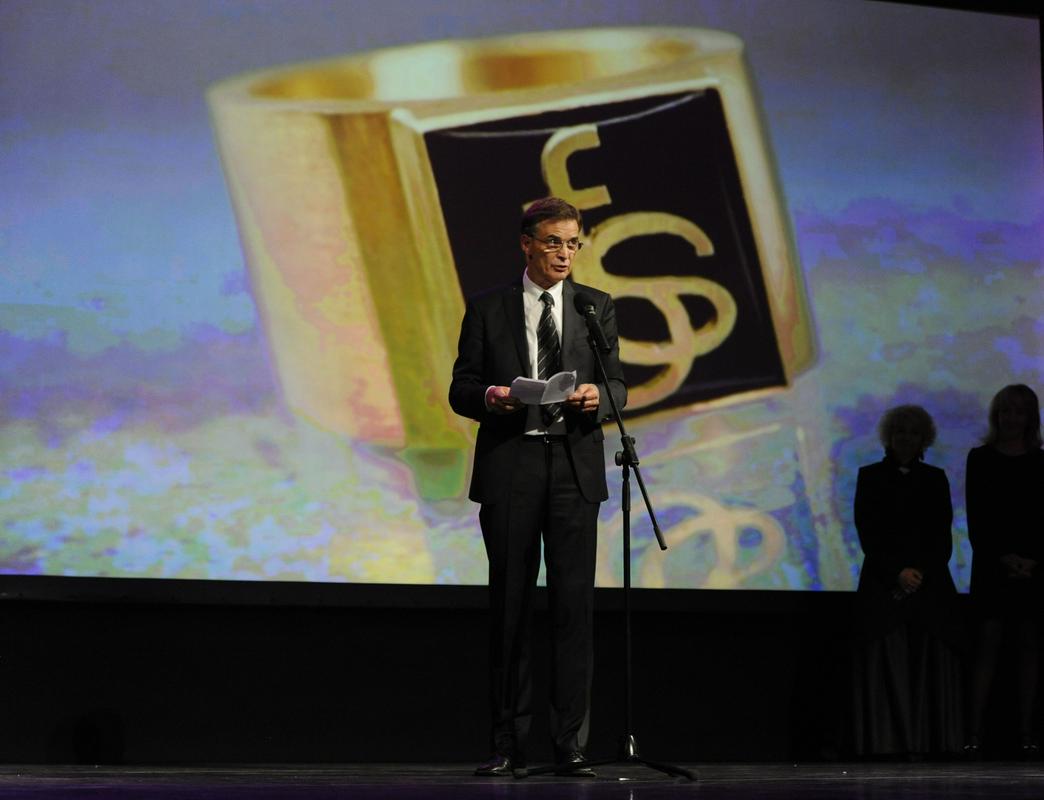
Considering its size, Slovenia has an exceptionally vibrant theater tradition. Much of the nation’s passion for the stage can be traced back to one man, Ignacij Borštnik, who established professional theater and brought modern acting techniques to the Slovenian Lands when they were still a part of Austria-Hungary.
Born in the small Upper Carniolan town of Cerklje in 1858, Borštnik began his career as a banker. However, he had a passion for acting and his talents were spotted by Ivan Hribar, a colleague at the bank. (Hribar would go on to become a successful mayor of Ljubljana.) Hribar urged Borštnik to pursue a career on the stage, and in 1885, the would-be actor headed to acting school in the Imperial capital of Vienna.
Upon his return to Slovenia, Borštnik began to teach at the local acting school and became a full-time theater performer. He excelled in a number of classical roles, but had a particular passion for contemporary theater, and on his initiative, a number of more modern performances were staged in Slovenia for the first time.
However, Borštnik was frustrated by the provincialism of Slovenian theater. He was determined to take it to a higher professional level, but he rapidly clashed with members of the theater management, who were content with the status quo.
Frustrated, Borštnik left Slovenia for the Croatian city of Zagreb. There, he took on a number of Shakespearian roles, always performed in his native Slovenian language, and was praised for his naturalistic style.
He returned to Slovenia several years later and introduced realism to the Slovenian stage. In addition to his regular theater appearances, Borštnik also worked as a poet, a translator, and a playwright. Acting remained his primary passion, however. When the first acting conservatory was founded in Slovenia, Borštnik became one of its professors. Drawing lessons from his own life story, he urged some of his most talented students to continue their education abroad. Borštnik continued to teach and act until his death in 1919.
Nowadays, his contribution to the art of theater in Slovenia is symbolized by the Borštnik Ring, which is given out for the highest achievements in the art of theater – and is proudly worn by actors and actresses who had made a life choice to follow in the footsteps of the master himself.

































































